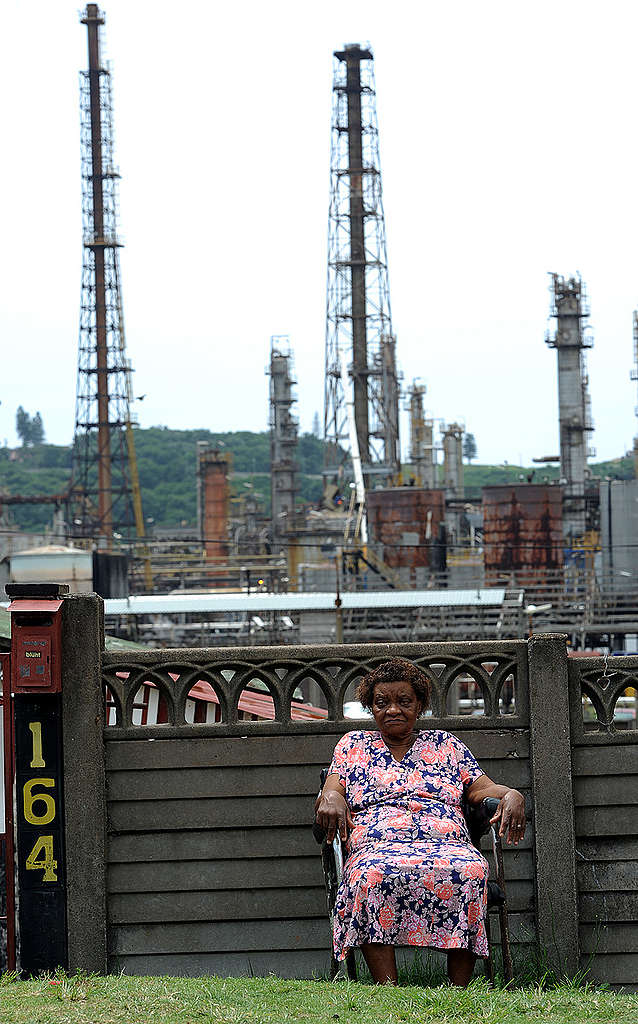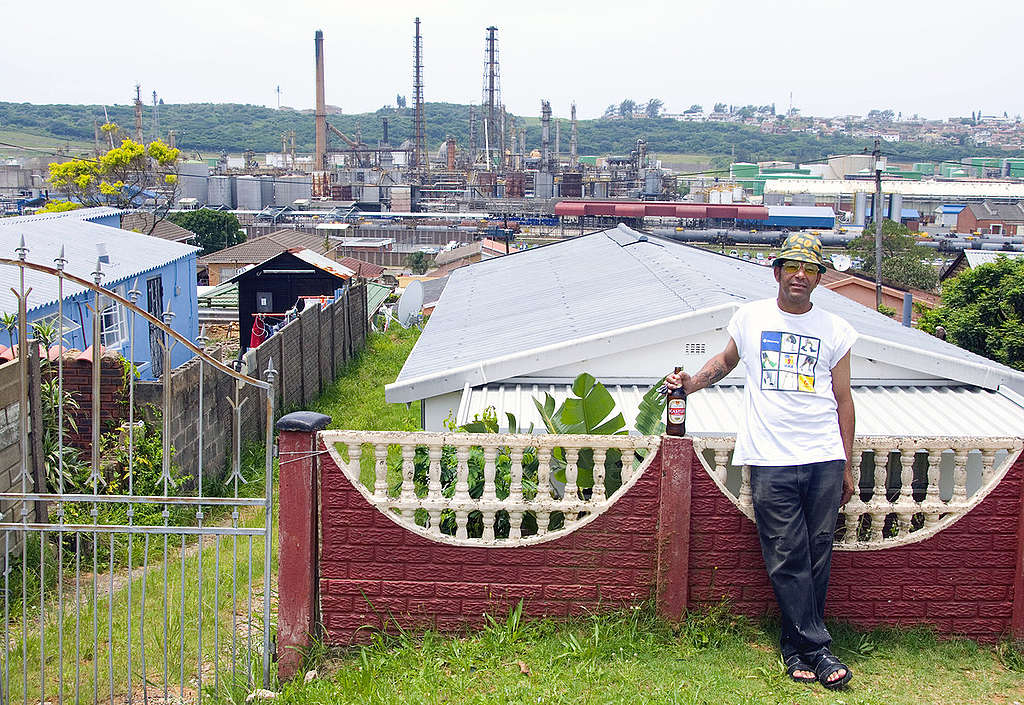South Africa's South Durban Industrial Basin over the years has seen numerous events of ecological damage that continue to feed into gender-based violence and femicide (GBVF) in the surrounding communities. And we're not alone. Similar patterns are evident around the world in communities who are bearing the brunt of social and environmental injustice.
Climate hazards from water shortages to air pollution have had a pronounced impact on the risk for womxn and girls - creating chronic and acute stressors which have amplified pre-existing risk factors such as poverty, rigid gender roles and community conflicts.
The Wentworth community, with a population estimate of 38,000 residents and a 40% unemployment rate, is desperate. The area was designated for so-called "Coloured" people during apartheid-era racial planning. It catches the bulk of pollution emitted in the South Durban Industrial Basin. Factories line Wentworth's northern, western and eastern perimeters. The huge Engen oil refinery in the middle of the community - mockingly called the ship that never sails - is a constant threat, with leaking pipes, toxic gas emissions and periodic infernos. It is here that I was born and raised by my grandmother in a dilapidated council housing unit.
Reputation vs reality
Our location and working-class or poor status gives Wentworth the reputation of being a difficult community. Environmental pollution, GBVF, drug infestation and an epidemic of gangsterism continues to plague the area since the early 1980s-1990s. In a study, nearly half of the community agreed with the statements: "men in this community often hit their girlfriends" and "in this community girls and women are often raped".

Many of the risk factors to gender based violence experienced in Wentworth are aggravated by slow-onset climate events such as the degradation of our air and water. We've seen how environmental pollution in the area has accelerated the pre-exisiting gender inequalities, dispossession, marginailisation and discrimination of girls and womxn in all their diversities. It has caused great risks to womxn and girls' livelihoods.
Gender inequalities and male economic supremacy over household incomes are perpetuated by the petroleum refineries' practices of largely male employment. Yet, it is largely womxn who bear the burden for the finance and care of their household, either as the primary breadwinner of female-headed household or for their unit within a polygamous household.
Big oil's chokehold over the Wentworth community and its gender bias means we will not only fail to achieve the global Sustainable Development Goals (SDG), but will also forgo the catalytic effect that gender equality can have on achieving all 17 SDGs. Without this happening, the promise of the transformative 2030 Agenda - of a better world where there is universal respect for human rights, dignity and full realisation of human potential and where no-one is left behind - will go unrealised.
The danger lies in failing to see how different oppressions are connected. When we fail to recognise that climate change is an imminent threat to the welfare of womxn and other vulnerable gender identities, it is not ranked as a priority and climate impacts are not understood as a threat to the liberation of vulnerable gender groups.
If gender-based violence is, rightly, recognised as a clear and present danger, then efforts - from community groups to all levels of government - can concentrate on dismantling the systems, institutions and attitudes that create and uphold the gender hierarchy. Feminists of all backgrounds agree that patriarchal violence is the foundation upon which extractivist societies are built and sustained. Societies where men dominate womxn (and other vulnerable genders) through the control of their sexuality and with the aim to seize, possess and exploit land and other resources.

Policy frameworks
Man-made climate change has its roots in patriarchal colonialism. The toxic systems and structures it produces are hierarchical, dividing and subordinating gender groups according to rigid cis-heteronormativity and Eurocentric notions of race. An intersectional approach to the climate crisis is essential to address climate degradation that is fuelling violence against womxn in all their diversities.
In tackling gender-based violence, climate policies can be part of the solution. In South Africa, for example, if the government is serious about ending gender based violence, then policy frameworks that speak to climate change, such as the just transition to renewable energy and green jobs, must be integrated into social plans like the National Strategic Plan on GBVF - to ensure that the energy transition is really a JUST one, for all, regardless of gender.
Oliver Meth is a gender-based violence activist based in Johannesburg, South Africa.
This op-ed was originally published by News24 on 21 November 2022.
The word womxn is used by the author as an alternative spelling to avoid the suggestion of sexism perceived in the sequences m-a-n and m-e-n, and to be inclusive of trans and nonbinary women.
In South Africa, Indigengous Peoples and people of mixed ethnicity were classified Coloured by the apartheid government. The term is still officially used a racial category for these groups under its new democratic dispensation.
Guest authors work with Greenpeace International to share their personal experiences and perspectives and are responsible for their own content.






